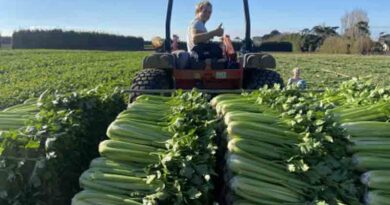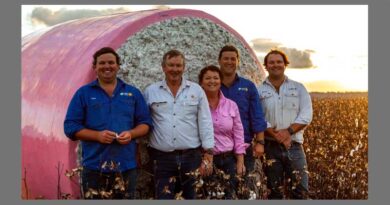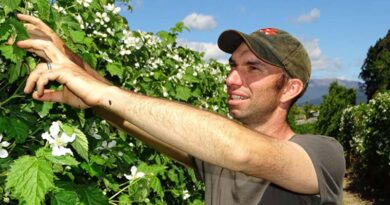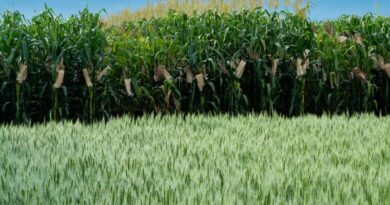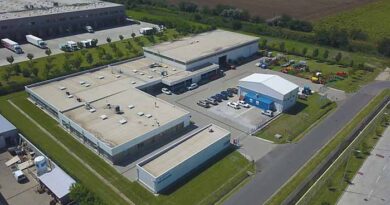Back to the family roots
22 March 2024, NZ: New Potatoes NZ board member, Bhupen Master, thinks he was probably one of the few Kiwis “doing the trade the other way” in moving home from Australia last year to rejoin the family business.
“I always wanted to come back,” he says.
And the time was right last year to integrate back into the family business with a generational shift. Masters Produce owns and crops a notable amount of land south of Auckland. Half is taken up with potatoes, with onions making up a good part of the remaining area and the rest is in greens, such as lettuce and broccoli and cover crops. Over 120 workers are employed during the busy summer harvesting months.
The origins of the business go back to his grandfather, Haribhai, who signed up to serve in the New Zealand army during the Second World War. As a strict vegetarian he was told he could better serve the war effort by growing vegetables for the troops. He was given a plot of land in Pukekohe and after the war finished was able to sell that and buy more land in Bombay.
His sons, Narandra, who still works in the business, and his late brother, Pravin, both left school early and grew the business. Later their sons, Jayant and Mahesh, joined and have been working there for over 30 years, now managing the business. A fruit shop was opened on Great South Road in the 1960s before the motorway over the Bombay Hills made access to and from Auckland easier.
“They started selling off the back of a truck and it evolved into a larger business,” Bhupen says. “Migrant families are not big spenders; they squirrel their money away. As kids we worked there, and it taught us work ethic and discipline.”
Over the years they specialised in growing potatoes and onions, generally buying land rather than leasing it. Managing and protecting the soil has always been important to the family. As it became difficult to expand operations in Bombay they moved to land around Pukekawa in the 1970s.
“We were constrained at Bombay because there wasn’t a lot of land available for cropping and it’s difficult to expand,” Bhupen says.
Suitable Pukekawa land had either been growing vegetables or grazed, and there were advantages being away from higher population density and where water was available for irrigation.
Bhupen attended Auckland Grammar then studied finance and economics at Auckland University before going to London to complete his master’s degree in finance and property at Cass Business School, University of London. He was part of Deutsche Bank’s graduate programme in 2000. As an equities analyst he specialised in listed real estate stocks which led to him being approached by Merrill Lynch, later Bank of America, where he worked for five years back in London.
“I saw both the good and bad sides of the Global Financial Crisis (GFC),” he says.
“It was very interesting covering numerous listed companies across the United Kingdom and Europe, including Eastern Europe and Russia and spending time there. When the GFC hit it turned nasty and you learned to manage risk fast.”
More recently he was a director at Goldman Sachs in Sydney with their Global Markets team. He and his wife, Elizabeth, an Australian who he met in the UK, have two young children and made the decision to move back home a year ago.
“I spent 20 plus years in financial markets, but I wanted a new challenge and to be closer to family. It’s important to keep learning and pushing yourself.”
Bhupen has also joined the board of Savor, a listed hospitality group. But mostly he’s been re-familiarising himself with the vegetable growing business. One of key observations he makes is the amount of compliance, the increased use of technology and how the cost curve has changed.
“It’s all very time consuming and costly but the technological aspect is exciting,” he says.
When he was approached about joining the Potatoes NZ board, he saw it as an opportunity to be part of an industry body that is endorsing and supporting growers, and he hopes to bring a different perspective to the board table.
While concerns of growers from different areas of the country might not be the same, there needs to be commonality as challenges can be better navigated by strong industry bodies, he believes.
When it comes to research and development into best practice, he says there’s a lot of work going on domestically and internationally and New Zealand needs to be at the forefront.
With environmental issues he says growers are aware of a changing climate, but they have been adapting for years through experience, adopting new technology, planting different varieties and through crop and soil management techniques.
“There’s a lot of pressure to meet climate goals but this is a balancing act between all stakeholders. Whilst the industry needs to adapt, regulations must be practical, workable and make economic sense.”
Masters Produce has spent a lot of time putting in silt traps on their farms using external consultants to do the planning then their own equipment to carry out the work required. This paid off during the Auckland Anniversary weekend flooding last year, along with other tools such as cross-planting headlands and the use of bunds to reduce soil loss.
Another focus for the business has been irrigation with a high percentage of their land able to be watered, most recently by large pivot irrigators.
An ongoing issue is attracting young people into vegetable growing, even with increases in the science and technology involved.
Labour issues of a year to 18 months ago have eased and he’s hopeful that with the Australian government’s tightening of immigration more may opt to come to New Zealand.
When it comes to promotion of potatoes, he believes there’s always more that can be done to showcase their versatility and affordability.
“They’re a staple, but outside a few varieties promotions drop away quickly.”
Asked about the future of potato growing in New Zealand Bhupen is very positive.
“It’s an industry which confronts continual challenges, and is overlooked for what it delivers, a household staple which provides nutrition,” he says.
“There’ll be more alignment, costings will be important and there’ll be less room for error. The compliance side will continue to be a challenge but growers want less paperwork so they can focus on growing, which is what they love. They’re very passionate people which is something I admire but I don’t think the complexities are well understood by those outside the industry.”
Also Read: FMC Launches Arc™ Farm Intelligence Platform in India
(For Latest Agriculture News & Updates, follow Krishak Jagat on Google News)


